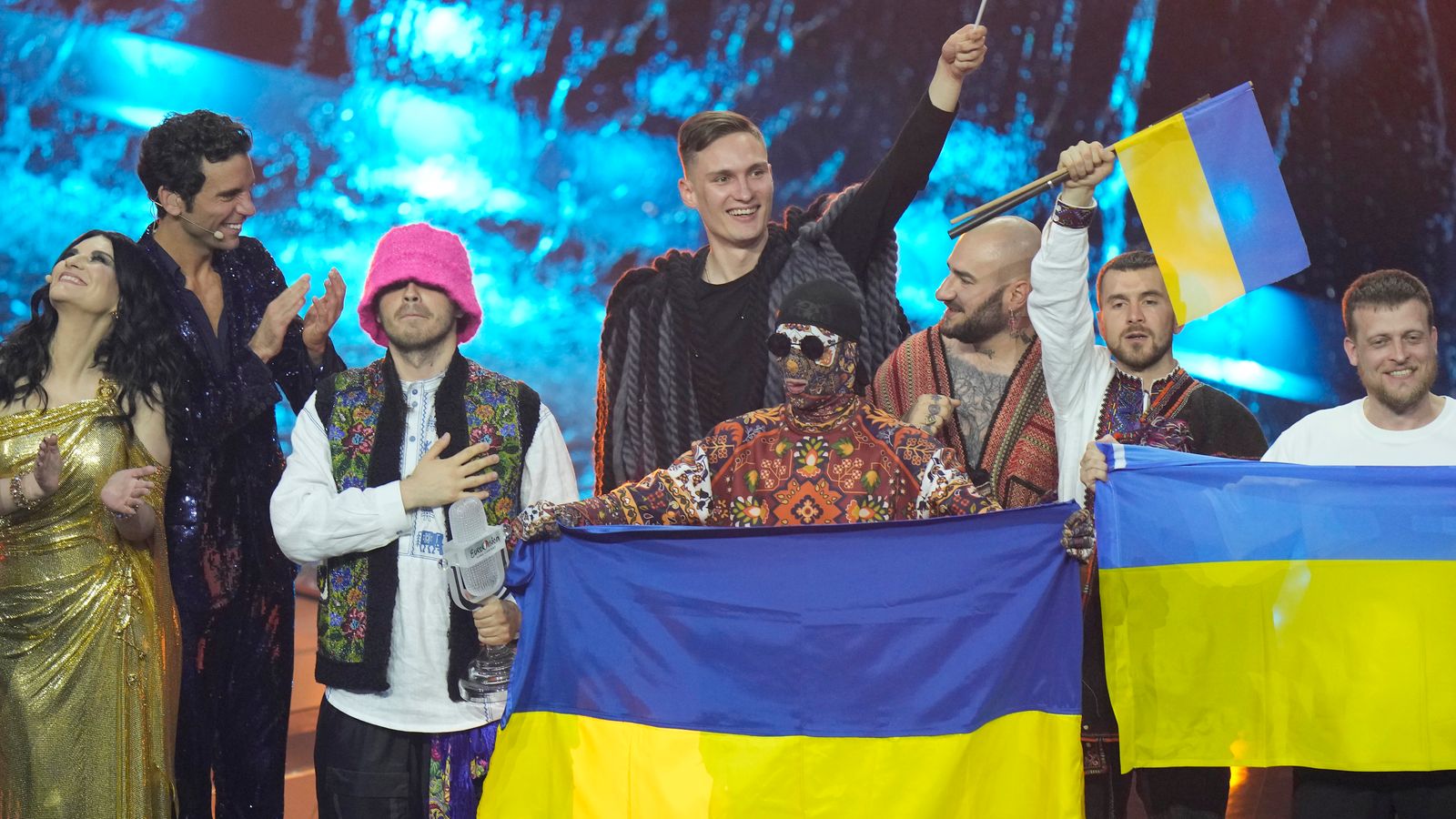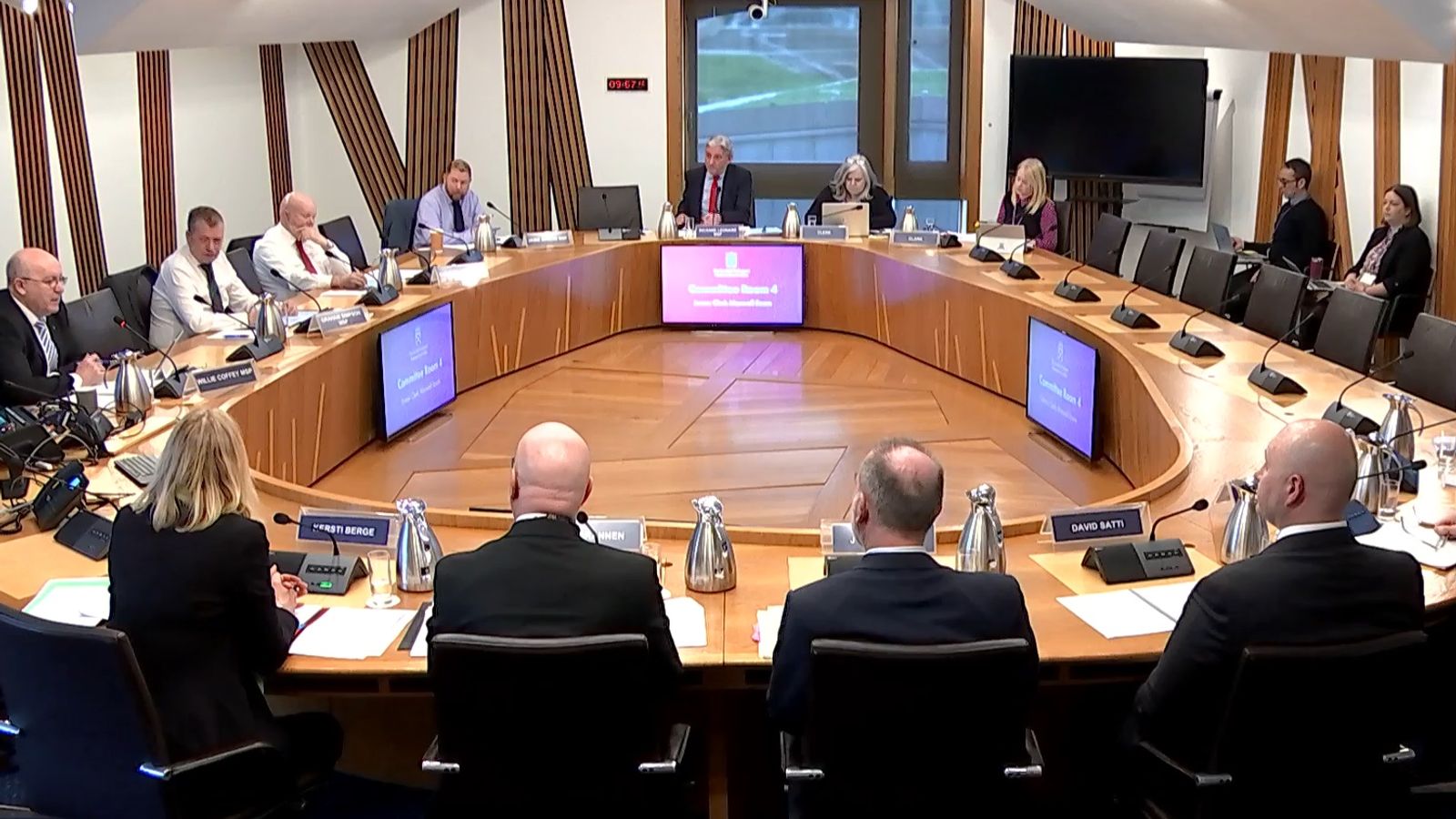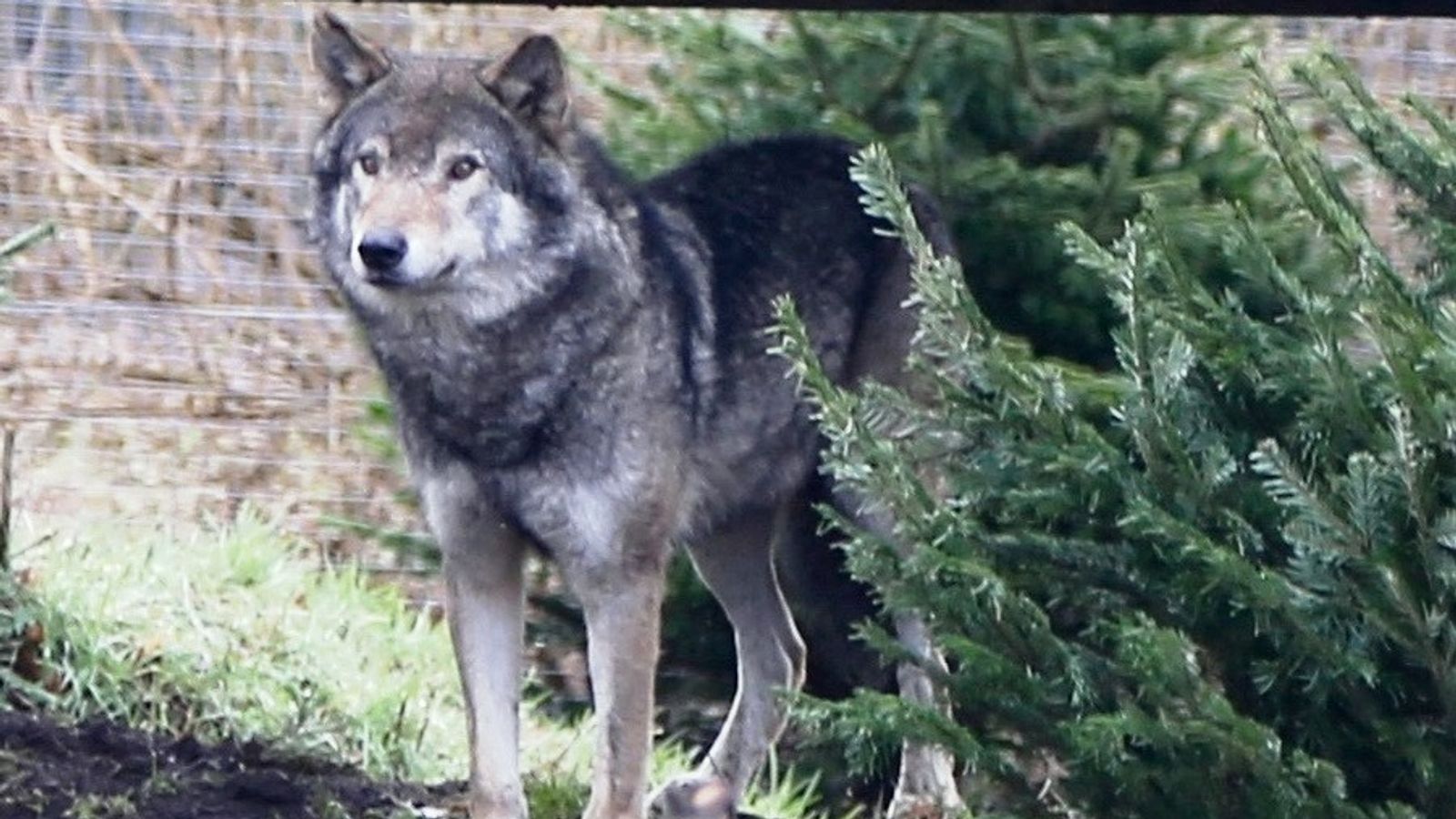Next year’s Eurovision Song Contest will be held in the UK, the European Broadcasting Union and the BBC have confirmed.
Ukraine’s entry – Kalush Orchestra – won the competition this year with their song Stephania, and would normally host the event the following year, however the Russian invasion of their country presents too great a safety risk.
The UK was the runner up this year, and as such has been invited to act as a host for the 67th Eurovision Song Contest. It is still being decided in which city the event will be held.
A statement from BBC director general Tim Davie posted on Twitter read: “It is a matter of great regret that our colleagues and friends in Ukraine are not able to host the 2023 Eurovision Song Contest. Being asked to host the largest and most complex music competition in the world is a great privilege.
“The BBC is committed to making the event a true reflection of Ukrainian culture alongside showcasing the diversity of British music and creativity.
“The BBC will now begin the process to find a Host City to partner with us on delivering one of the most exciting events to come to the UK in 2023.”
The BBC is the national broadcaster of the event in the UK.
Eurovision: Risk of air raids and mass casualties too high in Kyiv to host competition in Ukraine, organisers say
Boris Johnson says he hopes next year’s Eurovision can be held in Ukraine
Eurovision could be hosted in UK as producers say security issues mean it cannot be held in Ukraine
After the Ukraine’s victory, the European Broadcasting Union (EBU) announced that, following a “full assessment and feasibility study”, it had concluded the “security and operational guarantees” required to host the event could not be fulfilled by Ukraine’s public broadcaster UA:PBC.
Eurovision’s organisers went on to say the risk of Russian air raids and mass casualties was too high for Ukraine to host the competition in 2023.
Martin Osterdahl, the Eurovision Song Contest’s executive supervisor, said: “We’re exceptionally grateful that the BBC has accepted to stage the Eurovision Song Contest in the UK in 2023.
“The BBC has taken on hosting duties for other winning countries on four previous occasions. Continuing in this tradition of solidarity, we know that next year’s contest will showcase the creativity and skill of one of Europe’s most experienced public broadcasters whilst ensuring this year’s winners, Ukraine, are celebrated and represented throughout the event.”
Ukraine will automatically qualify for the Grand Final alongside the so-called Big Five – the UK, France, Germany, Italy and Spain – who each get a free pass because of their financial contributions.
Following the announcement, Culture Secretary Nadine Dorries tweeted a bespoke Eurovision logo showing the Ukrainian flag and the British flag side by side inside a heart, with the message: “This is Ukraine’s Eurovision and it’s an absolute privilege and honour for the UK to be supporting our friends”.
In a minute long video which she also shared online, she said: “The Eurovision Song Contest unites people through the power of music and creativity.
“Following a request from the European Broadcasting Union and the Ukrainian authorities, I’m delighted that the BBC has agreed to step in and host next year’s contest.
“I’m just sorry that, due to Russia’s continued acts of bloodshed, it has not been possible to host the event in Ukraine, where it should be.
“As hosts, the UK will honour the competition’s spirit and diversity, and, most importantly, ensure it reflects Ukraine’s recent Eurovision victory and Ukrainian creativity.”
TikTok star Sam Ryder was this year’s runner up with his track Space Man – a vast improvement on the UK’s disappointing 2022 score of nil points.
As the world’s largest live music event, the Eurovision Song Contest has a global audience of around 220 million people.








